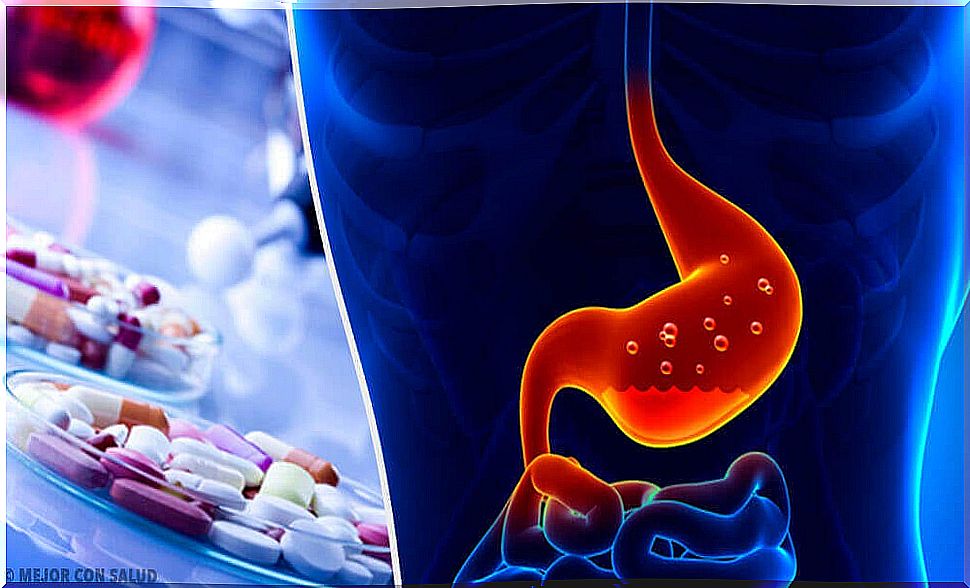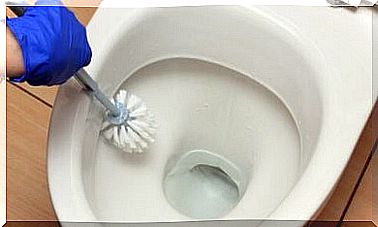Cinitapride: Indications And Contraindications
Cinitapride is a medicine used to treat gastroesophageal reflux, functional dyspepsia, and irritable bowel syndrome.
All of these disorders are included within what are known as gastrointestinal motility disorders. They have a considerable clinical and social impact and are a frequent reason for consultation in primary care, especially in adults. Its incidence in the general population can exceed 20%.
Therefore, cinitapride, belonging to the family of drugs called prokinetics, is very effective in treating all these problems, since it stimulates gastrointestinal motility.
What is gastroesophageal reflux?

Gastroesophageal reflux disease occurs when acid produced in the stomach leaves this organ and into the esophagus. In this way, the lining of the esophagus can be affected, triggering a series of symptoms, including:
- Laryngitis.
- Chronic cough.
- Difficulty to swallow.
- New or worsening asthma.
- Burning sensation in the chest.
- Regurgitation of sour food or liquids.
Although it can be reversed with a change in lifestyle, some people need treatment, such as cinitapride, or even surgery in the most severe cases.
What about functional dyspepsia?
This indication for cinitapride is a disorder that affects up to 30% of the general population. It is a pathology that has several symptoms such as:
- Sickness.
- Belching
- Distension.
- Early satiety.
- Pain or discomfort in the upper abdomen.
- Burning, pressure, or fullness sensation.
It is a fairly heterogeneous disorder. The reason for this is that various causes can lead to a similar clinical picture. In short, dyspepsia is a set of symptoms that originate in the upper gastrointestinal tract when there is no organic cause or metabolic disease that could explain the symptoms.
Irritable bowel syndrome

It is another common disorder in the general population that affects the large intestine. It develops with the following clinical picture:
- Gases
- Colic.
- Swelling.
- Abdominal pain.
- Diarrhea or constipation
As with reflux, most people with irritable bowel syndrome tend to alleviate symptoms with lifestyle changes. However, the most serious symptoms can be treated with medication, when cinitapride comes into play.
How does cinitapride work on the body?
As we have mentioned, this drug has a prokinetic activity at the gastrointestinal tract level by having a marked procholinergic action:
- On the one hand, it is capable of inhibiting the serotonin receptors found in the presynaptic neuron. In this way, the concentration of this neurotransmitter increases and, consequently, its effects.
- In turn, it has a slight antidopaminergic effect, which contributes to its therapeutic action.
In this way, cinitapride achieves:
- Accelerate gastric evacuation time in patients with pathological delay in gastric emptying.
- Improve the symptoms of dyspepsia associated with delayed gastric emptying and gastrointestinal transit.
- Reduce the number and duration of reflux episodes, as well as the time with esophageal pH less than 4.
Contraindications for use

The administration of this medicine is totally contraindicated in patients who present hypersensitivity to the active principle or any of the following excipients:
- Colloidal silica.
- Anhydrous lactose.
- Magnesium stearate.
- Microcrystalline cellulose.
- Sodium carboxymethyl starch.
On the other hand, the administration of cinitapride is contraindicated in those cases in which its prokinetic effect on the gastrointestinal tract may be detrimental to the patient. An example of this is in those patients who have hemorrhages, obstructions, perforations or tardive dyskinesia or neuroleptics.
The use of this medicine in children and adolescents is not recommended, since there is no clinical information on its safety and efficacy in this population group.
Similarly, there are no data regarding the use of cinitapride in pregnant women. And, although animal studies do not suggest direct or indirect harmful effects in terms of toxicity to reproduction, it is best to exercise caution and avoid the use of cinitapride during pregnancy. If the use is necessary, it is the doctor who must assess the risk / benefit ratio.
Consult your doctor before using cinitapride.
Cinitapride is a drug widely used to treat different digestive disorders, such as functional dyspepsia. It is important to note that it is contraindicated in a number of situations. Therefore, you should consult your doctor or pharmacist / your condition before using it. In this way, you can avoid complications for your health.









